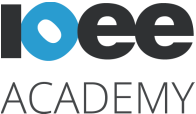Planning your steps to your mountain top
June is an interesting month whether you have a career or are running a business. That half year point is always worth a pit stop to see exactly where you are!
It’s the official start of summer soon with the longest day on the 21st June, so how we have spent our time and where we now want to spend our time comes into greater focus.
What we are exploring here is how to make your half year review more useful, practical and meaningful so that you succeed in whatever you have defined as your journey and your mountains.
Size and complexity of mountains don’t matter. What does matter is that you are focussed on and aligned to what is important.
In business this half year stage can easily be missed. In your career, it can be reduced to a paperwork-heavy, balanced scorecard that is not looked at again until the year end.
You’ve got the opportunity to make it something way more valuable for leading yourself and leading others.
Our client, Nelly Attar, took her journey to one of the ultimate peaks: the top of the world Everest. Yes, it was a physical and mental challenge in every way. The intrinsic result and purpose of climbing this mountain was to make a difference whilst championing sport for women and children in her home country, so all Nelly’s focus and time were aligned in every way. Nelly’s inspiring story and charity links are here.
Your mountain journey doesn’t have to be quite this intense! Just recognising what your journey is and which point of it you are on, is a very useful and valuable activity in itself.
June is an interesting month whether you have a career or are running a business. That half year point is always worth a pit stop to see exactly where you are!
It’s the official start of summer soon with the longest day on the 21st June, so how we have spent our time and where we now want to spend our time comes into greater focus.
What we are exploring here is how to make your half year review more useful, practical and meaningful so that you succeed in whatever you have defined as your journey and your mountains.
Size and complexity of mountains don’t matter. What does matter is that you are focussed on and aligned to what is important.
In business this half year stage can easily be missed. In your career, it can be reduced to a paperwork-heavy, balanced scorecard that is not looked at again until the year end.
You’ve got the opportunity to make it something way more valuable for leading yourself and leading others.
Our client, Nelly Attar, took her journey to one of the ultimate peaks: the top of the world Everest. Yes, it was a physical and mental challenge in every way. The intrinsic result and purpose of climbing this mountain was to make a difference whilst championing sport for women and children in her home country, so all Nelly’s focus and time were aligned in every way. Nelly’s inspiring story and charity links are here.
Your mountain journey doesn’t have to be quite this intense! Just recognising what your journey is and which point of it you are on, is a very useful and valuable activity in itself.
Checkpoint 1 – Meaningful Achievements
Start out by taking just two minutes to quickly note what things have meant the most to you so far this year. This can be anything, so it might include events, achievements, a project milestone, time out, new clients, time with your family, solving an issue, training your team, creating something, spending time in certain areas or places. The 2-minute restriction is important as it helps to see what you immediately value.
Checkpoint 2 – Explore Why
Set the clock again for 2 minutes and just explore each achievement and note by each achievement why they were important to you. What did it mean to you? Did it enable you to achieve other things? What was the overall impact? How did it make you feel? What leadership impact did these achievements have on others?
Checkpoint 3 – Written Objectives
As successful leaders of yourself or others, you will of course have brilliantly written and recorded back in January what you wanted to achieve this year, as you know that makes your achievement more likely to be successful. So, looking at these written objectives again, how have you done? It is really helpful here to look at what you have done rather than what you haven’t, so that you look and recognise progress even if your overall goal is yet to be achieved. Make sure you are being really objective and balanced about what you have done.
Checkpoint 4 – Your Learning
On looking at your written objectives, which leadership actions, behaviours and outcomes worked for you? What didn’t work? What insight have you gained from this? What help do you need? Asking for help, insight and feedback from others is a sign of strength in any leader. Learning from setbacks is one of the most important things we can do.
If you have a career, does your line manager agree with your view? If their view differs then seek to understand and explore to agree a way forward for you both. If you use defensiveness to challenge or acceptance without sharing, then your view will not be fully discussed. These responses lead to poor relationships and business outcomes.
If you have a business then it’s incredibly helpful to involve an external party such as a mentor, adviser or trusted business colleague to review with you, as well as engage all your team to gain insights and ideas.
Checkpoint 5 – Your Focus
Now compare your notes in Checkpoints 1 and 2 to Checkpoints 3 and 4. Are all your notes aligned here? Are the most meaningful achievements for you also aligned to your business objectives? One of the most useful questions to explore is if you are you spending your time in areas, results or on people where you really want it to be spent?
What do you really want going forward to make the second part of your year work best for you and your business interests?
Once you’ve done that, then it is a helpful time to consider how you are going to achieve this, what support you might need and what focus do you want for this?
We talked at one of leadership courses recently about different ways of spending our time and focus via Resilience Vitamins.
Which Resilience Vitamins might you want to add into your life?
It might not be the Vitamin Sea here. The common ones we see in our work are Vitamin A - to be more assertive and respectful over your needs, Vitamin P – to spend more time with the people in your life, Vitamin E - to enjoy more physical exercise, Vitamin T - to invest in your team training and support more or Vitamin R - to spend more review and planning time to explore what’s really important to you and your leadership goals. It could even be Vitamin X that you want an exit strategy from what you are currently doing.
Start out by taking just two minutes to quickly note what things have meant the most to you so far this year. This can be anything, so it might include events, achievements, a project milestone, time out, new clients, time with your family, solving an issue, training your team, creating something, spending time in certain areas or places. The 2-minute restriction is important as it helps to see what you immediately value.
Checkpoint 2 – Explore Why
Set the clock again for 2 minutes and just explore each achievement and note by each achievement why they were important to you. What did it mean to you? Did it enable you to achieve other things? What was the overall impact? How did it make you feel? What leadership impact did these achievements have on others?
Checkpoint 3 – Written Objectives
As successful leaders of yourself or others, you will of course have brilliantly written and recorded back in January what you wanted to achieve this year, as you know that makes your achievement more likely to be successful. So, looking at these written objectives again, how have you done? It is really helpful here to look at what you have done rather than what you haven’t, so that you look and recognise progress even if your overall goal is yet to be achieved. Make sure you are being really objective and balanced about what you have done.
Checkpoint 4 – Your Learning
On looking at your written objectives, which leadership actions, behaviours and outcomes worked for you? What didn’t work? What insight have you gained from this? What help do you need? Asking for help, insight and feedback from others is a sign of strength in any leader. Learning from setbacks is one of the most important things we can do.
If you have a career, does your line manager agree with your view? If their view differs then seek to understand and explore to agree a way forward for you both. If you use defensiveness to challenge or acceptance without sharing, then your view will not be fully discussed. These responses lead to poor relationships and business outcomes.
If you have a business then it’s incredibly helpful to involve an external party such as a mentor, adviser or trusted business colleague to review with you, as well as engage all your team to gain insights and ideas.
Checkpoint 5 – Your Focus
Now compare your notes in Checkpoints 1 and 2 to Checkpoints 3 and 4. Are all your notes aligned here? Are the most meaningful achievements for you also aligned to your business objectives? One of the most useful questions to explore is if you are you spending your time in areas, results or on people where you really want it to be spent?
What do you really want going forward to make the second part of your year work best for you and your business interests?
Once you’ve done that, then it is a helpful time to consider how you are going to achieve this, what support you might need and what focus do you want for this?
We talked at one of leadership courses recently about different ways of spending our time and focus via Resilience Vitamins.
Which Resilience Vitamins might you want to add into your life?
It might not be the Vitamin Sea here. The common ones we see in our work are Vitamin A - to be more assertive and respectful over your needs, Vitamin P – to spend more time with the people in your life, Vitamin E - to enjoy more physical exercise, Vitamin T - to invest in your team training and support more or Vitamin R - to spend more review and planning time to explore what’s really important to you and your leadership goals. It could even be Vitamin X that you want an exit strategy from what you are currently doing.
There are lots of options. The important thing here is to be a truly authentic leader and seek to explore, understand and sort the right solutions for your life and for your business/career interests.
Happy reviewing - Wishing you all a lovely Summer ahead! 😊
If you would like any help and support on your journey, please contact us for our flexible leadership and mentoring options for individuals and teams. More information on our leadership training programmes can be found here.
Happy reviewing - Wishing you all a lovely Summer ahead! 😊
If you would like any help and support on your journey, please contact us for our flexible leadership and mentoring options for individuals and teams. More information on our leadership training programmes can be found here.



 RSS Feed
RSS Feed
